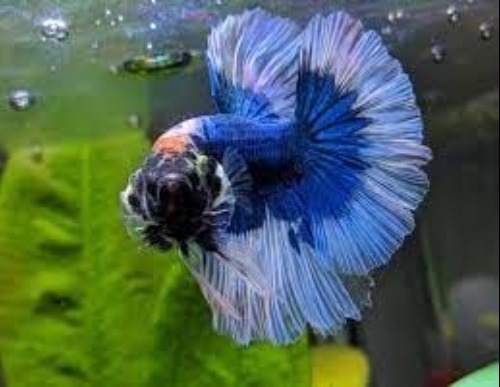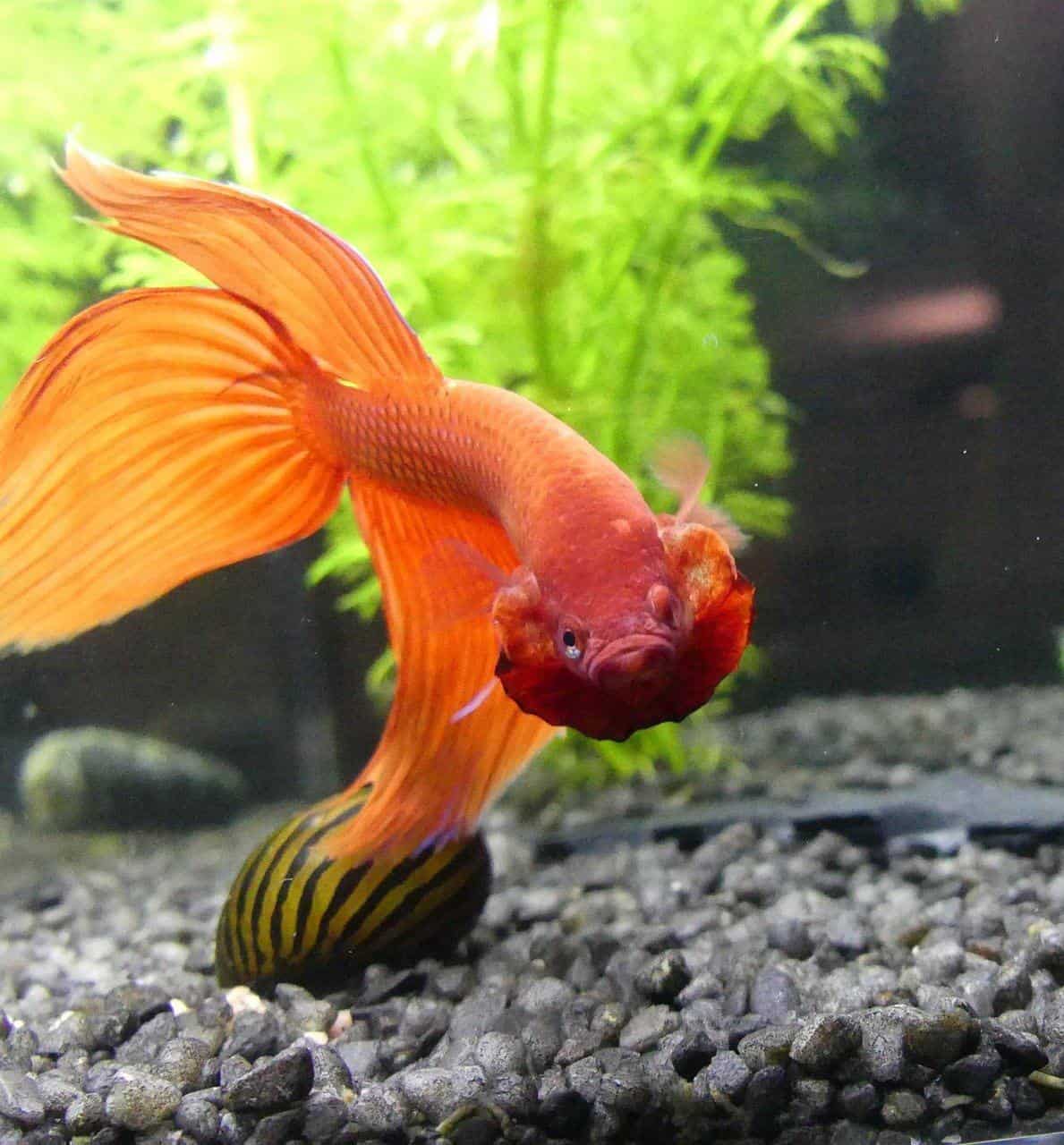Betta fish are fascinating creatures that are popular among aquarium enthusiasts. However, there are certain behaviors that can be alarming for first-time owners, such as gill flaring. Understanding what gill flaring is and how to address it is crucial for the health and well-being of your betta fish.
In this article, we will explore the reasons behind gill flaring and provide practical tips on how to prevent and address this behavior. By the end of this article, you will have a better understanding of your betta fish and be able to provide the best care possible for your aquatic friend.
Betta fish gills flaring is a natural behavior that can occur due to various reasons, such as aggression, stress, or even excitement. However, if your betta fish is constantly flaring its gills, it may indicate an underlying health issue. To address it, first, make sure the water quality is optimal and the tank is spacious enough. Then, try to identify and eliminate any potential stressors, such as bright lights or noisy surroundings. Finally, consider adding some hideouts or plants for your betta fish to retreat to when feeling overwhelmed.

Understanding Betta Fish Gills Flaring and How to Address It
Betta fish are known for their vibrant colors and flowing fins, but they are also known for their unique behavior of gill flaring. Though gill flaring can be a sign of aggression, it can also indicate stress or poor water conditions. In this article, we will explore the reasons why Betta fish flare their gills and how to address it.
Why Do Betta Fish Flare Their Gills?
Betta fish have a unique organ called the labyrinth organ that allows them to breathe air from the surface. However, they still need to use their gills to extract oxygen from the water, especially when the water quality is poor. Gill flaring is a way for Betta fish to increase their oxygen intake and is a sign that they are feeling stressed or threatened.
Gill flaring can also be a sign of aggression towards other fish or their reflection in a mirror. Male Betta fish are known for their territorial behavior and may flare their gills to display dominance or to attract a mate.
Poor Water Conditions and Gill Flaring
Poor water conditions are one of the most common reasons for Betta fish to flare their gills. If the water is not properly filtered or is too acidic, it can cause stress and discomfort for the fish. Betta fish are also sensitive to sudden changes in water temperature and may flare their gills in response to these changes.
To prevent gill flaring due to poor water conditions, it is important to maintain a clean and balanced aquarium. Regular water changes and proper filtration can help keep the water quality in check. It is also important to monitor the temperature and pH levels of the water to ensure that they remain stable.
How to Address Gill Flaring in Betta Fish
If your Betta fish is flaring its gills, it is important to identify the underlying cause and address it promptly. If the water quality is poor, perform a water change and adjust the pH level as needed. If the water temperature is fluctuating, make sure that the heater is working properly and adjust it accordingly.
If your Betta fish is flaring its gills due to aggression, it may be necessary to separate it from other fish or remove any reflective surfaces from the aquarium. Providing your Betta fish with plenty of hiding places and plants can also help reduce stress and prevent gill flaring.
Betta Fish Gill Flaring Benefits
While gill flaring can be a sign of stress or aggression, it can also be beneficial for Betta fish. Flaring their gills helps to increase their oxygen intake and can improve their overall health and well-being. It is important to differentiate between aggressive and defensive gill flaring and to address any underlying causes of stress in your Betta fish.
Betta Fish Gill Flaring Vs. Aggression
It is important to differentiate between gill flaring as a defensive mechanism and gill flaring as a sign of aggression. Defensive gill flaring is when Betta fish flare their gills in response to a perceived threat or stressor. Aggressive gill flaring is when Betta fish flare their gills to display dominance or to challenge another fish.
If your Betta fish is displaying aggressive gill flaring, it may be necessary to separate it from other fish or to remove any reflective surfaces from the aquarium. Providing your Betta fish with plenty of hiding places and plants can also help reduce stress and prevent aggressive behavior.
Conclusion
In conclusion, Betta fish gill flaring can indicate stress, poor water conditions, or aggression. It is important to identify the underlying cause of gill flaring and address it promptly to ensure the health and well-being of your Betta fish. Maintaining a clean and balanced aquarium, monitoring water temperature and pH levels, and providing plenty of hiding places can help prevent gill flaring and reduce stress in your Betta fish.
Frequently Asked Questions
As a professional writer, I can assist you in understanding Betta fish gills flaring and how to address it. Below are five commonly asked questions and their answers.
What is Betta fish gills flaring?
Betta fish gills flaring is a common behavior displayed by male Bettas. It is a natural instinct where they flare their gills to intimidate other males or to attract females during breeding. However, in some cases, it can be a sign of stress or poor water conditions. Female Bettas may also flare their gills, but it is not as common as in males.
If your Betta fish is constantly flaring its gills, it is essential to observe its behavior and environment to identify the cause of the flaring. This will help you address the issue and ensure your Betta fish is healthy and happy.
What are the causes of Betta fish gills flaring?
As mentioned, Betta fish gills flaring is a natural behavior, but it can also be a sign of stress or poor water conditions. Some common causes of Betta fish gills flaring include inadequate tank space, poor water quality, sudden changes in water temperature, and the presence of other aggressive fish in the tank.
If you notice your Betta fish flaring its gills excessively, it is essential to check its environment and take appropriate measures to address the issue. This may include increasing the tank size, improving water quality, or removing aggressive fish from the tank.
How can I tell if my Betta fish is stressed?
Betta fish can display several signs of stress, including lethargy, loss of appetite, and excessive gill flaring. Other signs include clamping of fins, hiding, and gasping for air near the water surface. If you notice any of these signs, it is essential to observe your Betta fish’s environment and make necessary changes to reduce stress.
Ensuring your Betta fish has adequate space, clean water, and a balanced diet can help reduce stress levels. You can also add decorations and plants to the tank to create a more natural environment and provide hiding spots for your Betta fish.
How can I address Betta fish gills flaring?
If your Betta fish is flaring its gills excessively, it is essential to identify the cause and take appropriate measures to address the issue. This may include increasing the tank size, improving water quality, or removing aggressive fish from the tank.
Adding decorations and plants to the tank can also help reduce stress levels and provide hiding spots for your Betta fish. It is also essential to monitor your Betta fish’s behavior and make necessary changes to its environment to ensure it is healthy and happy.
Is Betta fish gills flaring harmful to the fish?
Excessive Betta fish gills flaring can be harmful to the fish as it can cause stress and affect their immune system, making them more susceptible to diseases. It is essential to identify the cause of the flaring and take appropriate measures to address the issue to ensure your Betta fish is healthy and happy.
If you notice your Betta fish flaring its gills excessively, it is essential to monitor its behavior and environment and make necessary changes to reduce stress levels and improve water quality.

Why is my betta fish flaring its gills?
In conclusion, understanding betta fish gills flaring is crucial for every betta fish owner. It is a natural behavior that can be caused by different factors such as stress, aggression, or even excitement. While it may seem alarming at first, it is important to address it promptly to ensure your fish’s well-being.
One of the best ways to address gills flaring is by identifying the root cause of the behavior. If it is due to stress, providing a comfortable and stress-free environment can help alleviate the issue. On the other hand, if it is due to aggression, separating the fish or providing enough space can help reduce the behavior.
In summary, betta fish gills flaring is an important behavior to understand and address. By providing a suitable environment and identifying the root cause of the behavior, you can ensure your fish’s happiness and longevity.
